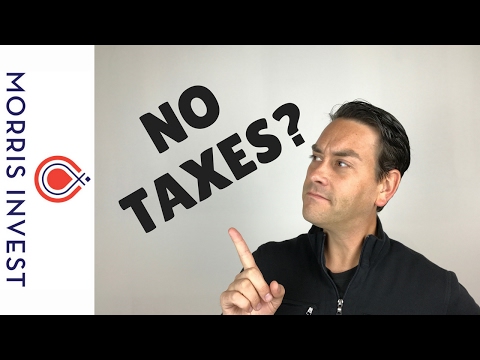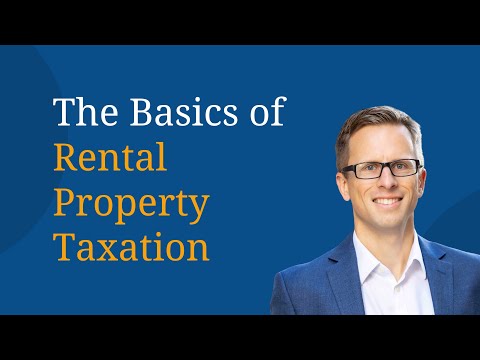Rental income tax may seem as thrilling as watching paint dry, but hold your horses, because we’ve got some surprising tidbits that could change the game for landlords and investors. You generally must include in your gross income all amounts you receive as rent, which the IRS typically considers unearned income. This means it’s taxed a bit differently than the paycheck from your 9-to-5. Now, let’s dive deep into the world of rental income tax, looking at the essentials, some crazy facts, and how to navigate the complex scenarios you might face.

Rental Income Tax Essentials: Understanding the Basics
Navigating the turbulent seas of rental income taxation can often seem like a daunting voyage. The IRS views rental income as unearned income, which includes the payments you pocket for the use or occupation of property. Unlike your regular wages or business income from breaking a sweat, this is the cash flow from your real estate investments, and yes, it’s subject to federal income tax.
Introduction to IRS Schedule E plays a pivotal role here. This form is where you report all your rental income and deductions. It’s like the treasure map leading you through the murky waters of rental property taxation, ensuring you don’t miss out on any hidden coves of deductions or bump into any unintended shoals of additional taxation.

5 Crazy Facts About Rental Income Tax That Will Surprise You
Let’s drop anchor and explore some fascinating facts about rental income tax that will have you saying, “Well, blow me down!”
Fact #1: The Little-Known Loophole in IRS Schedule E That Can Save You Money
Here’s a nifty trick tucked away in IRS Schedule E: the ability to deduct certain expenses that might not scream “deduct me!” Consider the case of Juan Dixon, who realized that his rental property’s security system wasn’t just a safety feature—it was a deductible expense! By keeping sharp eyes on IRS Schedule E, he saved some serious coin that bolstered his profit margins.
Fact #2: How Rental Property Tax Deductions Are Often Overlooked but Highly Advantageous
You’d be surprised at the rental property tax deductions that go unnoticed, like a white maxi dress at a goth concert. These deductions can dramatically reduce your tax liabilities, but many landlords walk right past them. Here’s a quick list to snag those tax break goodies:
– Depreciation of property and improvements
– Repairs that bring sweet normalcy back to your rental
– Utilities that you pay for (because no one’s living like cavemen)
– Insurance premiums that protect your investment
– Professional and legal fees, because sometimes you need a helping hand
Sadly, many of these juicy deductions are as neglected as Elin nordegren‘s golf clubs. But by claiming them, you can minimize your tax bill and maximize your wallet’s happiness.
Fact #3: The Surprising Impact of Rental Income Tax on Investment Strategies
Your approach to rental income tax can actually shape your investment strategy. Look at the difference between short-term rental moguls and the long-haul landlords. Short-term rentals can offer quick, significant income, and you’ll need to brace for a heftier tax bite. On the other hand, long-term strategies favor tax planning and gradual wealth accumulation, with a milder tax touch but requiring more patience.
Fact #4: Unconventional Depreciation Strategies That Could Change Your Rental Income Tax Game
Here’s where it gets quirky: there are unconventional depreciation strategies that, while totally above board, are as underused as Roja Directa at a no-wifi campsite. Accelerated depreciation, for instance, can turbo-charge your deductions early on in the property’s life cycle. This forward-thinking move can shield more income from taxes sooner rather than later.
Fact #5: The Tax Implications of Renting Out Your Primary Residence Versus Investment Properties
The choice between renting out your primary residence or investment properties can have different tax implications. If you thought the choice was as simple as picking between chocolate and vanilla, think again. Renting out your primary residence may offer some temporary tax-free earnings thanks to the “Masters exception,” while investment properties open up a whole suite of deductions but come with the expectation of regular passive income tax.

| Category | Details |
|---|---|
| Definition | Rental income refers to payments received for the use or occupation of property. |
| Type of Income | Unearned income. |
| Tax Inclusion | Must be included in gross income. |
| Taxable Events | Receiving rent, advance rent, canceling a lease, expenses paid by tenant, property or services received in lieu of money. |
| Deductible Expenses | Mortgage interest, property tax, operating expenses, depreciation, repairs. |
| Deduction Limits | Up to $25,000 if actively participated in passive rental activity and subject to income limits. |
| Reporting | Report on Schedule E (Form 1040). |
| Tax Treatment | Treated similarly to federal income tax. |
| Marginal Tax Rate Example | Taxed at taxpayer’s respective rate, e.g., 22% if that’s their marginal tax rate. |
| Special Allowances | Active participants in passive rental activity may deduct losses up to $25,000 from nonpassive income. |
| Timing of Deductions | Generally deducted in the year they are paid. |
Navigating Complex Scenarios: When Rental Income Tax Gets Tricky
When you wade into deeper waters, such as property exchange, inheritance, or interstate properties, rental income tax turns into a multi-headed sea monster. It’s crucial to consult with a savvy tax professional who’s navigated these waters before and can guide you through without your wallet walking the plank.

The Future of Rental Income Tax: Predictions and Preparations
Staying ahead of the curve is key. While we don’t have a crystal ball, trends suggest rental income tax could see reforms or adjustments. For instance, if the jumbo loan limit rises, this could influence real estate markets and, consequently, your tax strategy. Keeping abreast of predictions from reputable sources, like Mortgage Rater, means you can pivot and parry as the landscape changes.
Smart Rental Property Tax Deductions Strategies for Maximizing Returns
When it comes to rental property tax deductions, you want to be as clever as a fox in a henhouse. From leveraging every permissible deduction to meticulous record-keeping for things like Is property tax deductible, having a strategy for your deductions is essential. Don’t just collect receipts—know your potential deductions like the back of your hand.
Technology and Tools: Innovations Helping You With Rental Income Tax
Gone are the days of ledger books and pencils. Cutting-edge tools and software innovations can help landlords keep track of expenses and prepare for tax season with ease. Users are finding that with the right tech, managing rental income tax is as smooth as silk, freeing up more time to focus on growing their rental empire.
Conclusion: Key Takeaways for Savvy Landlords and Investors
As we hoist the mainsail on our rental income tax journey, remember that a keen eye and a sharp mind are your best allies. Utilize deductions, stay informed on tax law changes, embrace technology, and always consult professionals when you’re in uncharted waters. With these strategies, you’ll be navigating the rental income tax seas like a seasoned captain. Happy investing, and may your rental income tax burdens be as light as a feather!
Rental Income Tax: 5 Crazy Facts That Will Floor You!
When you’re diving into the world of rental properties, getting your head around rental income tax can feel like trying to understand What Is a jumbo mortgage – it’s a big deal, and there’s a ton to unpack. But don’t worry, we’re not going to let you wade through the murky waters of tax laws alone. Let’s spice things up with some juicy trivia that’ll leave you hooked, and probably, just a tad more knowledgeable!
Did Someone Say Deductions? Cha-Ching!
Alright, buckle up! Deductions are the sweet, sweet candy of the tax world. Imagine you’ve racked up some hefty expenses while sprucing up your rental pad – those bad boys can often be deducted from your rental income. No kidding around, this can range from repairs and maintenance to a funky little loophole called depreciation. Seriously, who knew rental income tax could be as satisfying as finding money in your old coat pocket?
The Ghost of Furniture Past
Here’s a fun nugget: if your rental comes furnished, you might just be sitting on a goldmine of tax benefits. We’re not just talking about claiming those groovy lamps and funky retro couches. Nope, this is about a concept called ‘wear and tear allowance’ that used to be all the rage. Now, even though it’s ghosted us since 2016 and doesn’t apply anymore, the memory lingers on like a catchy tune. RIP, old friend.
The Odd Rule of 14
Ever heard of something that sounds straight outta a fairy tale like Goldilocks? Well, the rental income tax world has its own quirky tale – it’s called the “14-Day Rule.” If you rent out your property for less than 14 days a year, guess what? You could qualify for tax-free income on that. Yup, not paying taxes on that sweet, sweet income feels like striking gold, but don’t get too carried away, it’s not a free-for-all!
Jumbo-Sized Tax Deductions
Hold your horses! Before you think all the fun’s in the short-term rental game, let’s talk about something that has weight—jumbo mortgages. Navigating through rental income tax can be as complex as understanding jumbo loan rates. Bigger loans, bigger properties, and potentially, bigger tax deductions. Playing in the big leagues with your rental could mean larger interest deductions. Cha-ching indeed!
The Curious Case of Accidental Landlords
Last but not least, ever heard of the accidental landlord? It’s not a TV sitcom character, but it could be you! Maybe you inherited a house or had to move for a job and decided to rent out your old digs. Surprise—you’re a landlord now! And the rental income tax system sees you just the same as a property mogul. But hey, before you stress-eat a tub of Nutramigen, remember, knowledge is power! Understanding your new financial situation means you can handle it like a pro.
So there you have it, folks! Five crazy facts about rental income tax that show it’s not just about crunching numbers—it’s a roller coaster ride of rules, benefits, and surprises. Keep a steady hand on the tiller and you might just sail through tax season with a few coins left in your pocket. Now, isn’t that something to write home about?

How is rental income taxed by IRS?
Ah, rental income and taxes – as confusing as a corn maze, right? Well, let’s break it down. When the IRS gets its hands on your rental income, it’s taxed as ordinary income. Yep, Uncle Sam wants a slice of that pie. But don’t forget, you get to trim that slice by deducting expenses, which is pretty neat!
Does rental income count as earned income?
Hold your horses, rental income isn’t the same as rolling up your sleeves and going to work. Nope, it doesn’t count as earned income. Why? Because that cash flow comes from your property doing the heavy lifting, not you.
How is rental income taxed in NY?
Over in the Big Apple, rental income is taxed just like at the federal level – based on your state tax bracket. And hey, don’t forget about the local taxes – NYC can take a bite too!
What is $25,000 annual rental loss allowance?
The $25,000 annual rental loss allowance is like a safety net. If you make less than $150,000 a year, you can kiss goodbye up to $25,000 in rental losses against your other income. It’s like a little cushion for the rookie landlords.
How does the IRS know if I have rental income?
How does the IRS know if you’re pocketing rent money? Oh boy, they have their ways! Banks spill the beans when you deposit checks, tenants can rat you out, or the IRS might just catch a discrepancy. It’s like playing hide and seek with a bloodhound.
Is rent from boyfriend considered income?
If your boyfriend’s paying rent, cha-ching! That’s income, alright. Whether it’s love or money, if it’s a consistent payment for living in your place, the IRS wants to hear about it.
What expenses can I deduct from rental income?
When it comes to deductions, it’s a smorgasbord! You can deduct a ton – think repairs, management fees, travel expenses, and even depreciation. It’s like making your rental’s wallet a bit less skinny.
Why is rental income not earned income?
Rental income is not earned income because, well, you’re not clocking in, are you? You’re just collecting cash that your property earns while you binge-watch your favorite series. It’s like money for nothing – almost.
How is passive rental income taxed?
Passive rental income gets taxed, but not like your 9-to-5 paycheck. Sit back and relax, it’s not subject to Social Security or Medicare taxes. Sounds like a sweet deal, right?
Can I deduct mortgage payments from rental income?
About deducting mortgage payments – hold your horses. You can’t deduct the whole payment, but the interest part? Absolutely. It’s like getting a discount on your loan for playing landlord.
What is a good ROI on rental property?
A good ROI on rental property, huh? Well, traditionally, anything above 6% is like hitting a good note in the real estate tune. But aim high, ’cause a solid base is 8-12%.
What is the average return on a rental property?
The average return on a rental is usually between 8-10%, but remember, that can swing with the market like a trapeze artist.
Why is my rental property loss not deductible?
If your rental property loss isn’t deductible, it could be ’cause you’re making too much dough elsewhere. The IRS can be stingy with those earning over $150,000. It’s like showing up to a buffet after it’s closed.
Is rental income passive income?
Indeed, rental income is largely considered passive income. You’re more like the supervisor, not the workhorse, in this income-earning rodeo.
What is the loophole for passive activity loss?
Looking for a loophole for passive activity loss? Enter real estate professionals. They’ve got a special pass that lets them deduct losses without as many restrictions. Kinda like having a backstage pass at a concert, eh?
Is rental income passive or active IRS?
Rental income is typically passive income for the IRS because you’re not exactly breaking a sweat to earn it. It’s more like your money is working out while you’re chilling on the couch.
How do you calculate rental income?
To calculate rental income, just tally up the rent checks like you’re counting stars. It’s pretty straightforward – total the rent, subtract the expenses, and voilà, there’s your profit.
How does the IRS treat renting a property to a family member?
Renting to a family member can throw up red flags for the IRS. They’re eyeing you to ensure it’s all fair market value – anything less, and they might give you the stink eye, thinking it’s a sweet deal just ’cause it’s family.
How do you calculate gross rental income?
Calculating gross rental income is as easy as pie. Just add up all the rent payments you get before any expenses do the disappearing act. It’s the total haul before you pay the piper!



